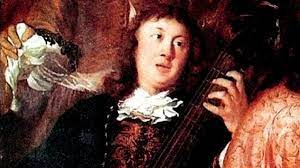Dietrich Buxtehude - Prelude in C major, BuxWV 137
Dieterich Buxtehude (1637/39 – 9 May 1707) was a Danish-German organist and composer of the Baroque period. His organ works represent a central part of the standard organ repertoire and are frequently performed at recitals and in church services. He composed in a wide variety of vocal and instrumental idioms, and his style strongly influenced many composers, including Johann Sebastian Bach, his student. Today, Buxtehude is considered one of the most important composers in Germany of the mid-Baroque.
For more:
http://www.melhoresmusicasclassicas.blogspot.com

